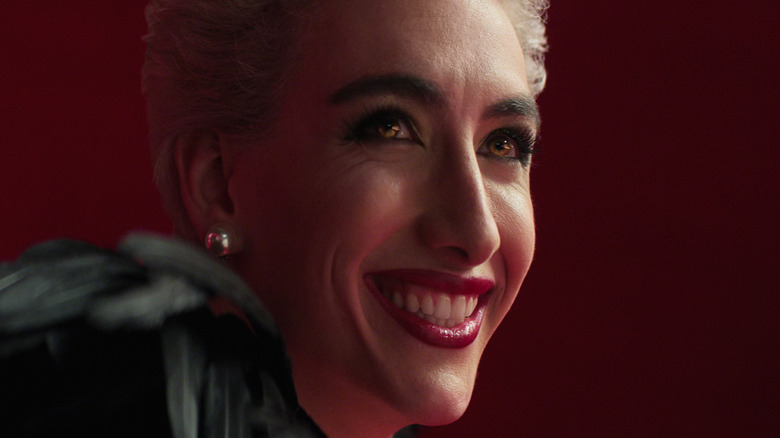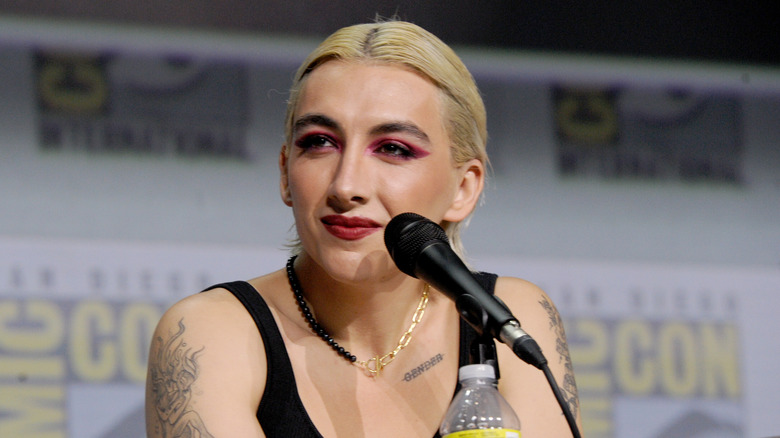The Real Reason Desire From Netflix's Sandman Is Genderfluid
Neil Gaiman created his own deific pantheon for "The Sandman," a story that follows the titular King of Dreams, Morpheus (Tom Sturridge). This pantheon of god-like entities are known as the Endless — seven powerful siblings that physically embody mortal forces of nature. For example, Dream represents every living thing's hope and drive. Aside from providing undue embarrassment, that's simply what dreams are for. In this way, Desire of the Endless (Mason Alexander Park) represents every mortal's yearning. In their own words, "Where I touch, things want and need and love — drawn to their objects of desire like butterflies to a candle flame."
Desire is unique among the Endless in that they are genderfluid, that is to say, they are not exclusively one gender. Sure, sometimes the can appear male, sometimes female, sometimes anywhere in between or beyond, but the decision is ultimately theirs to make. Interestingly, all seven of the Endless can shift their form however they please and yet Desire is the only entity that utilizes their skill in such a manner. This isn't a minor thing or ignored detail, either. The Endless often refer to each other as "brother" or "sister" but all of them, without question, refer to Desire as "sibling."
It's especially a nice touch because Desire is something of a jerk (a hilarious understatement, but elaborating further is irrelevant to this article) and, even when the other Endless are furious with Desire, they never refer to them in a way that ignores their identity. Let's take a look at how the Netflix series chose to honor this part of Desire's character and why the original decision was made.
Mason Alexander Park is a nonbinary performer navigating a complex character
So, to the question — why is Desire genderfluid? Replying to a fan question in 2014, Gaiman wrote on Tumblr, "It didn't make sense to me to make Desire male or female. I started with the idea of someone who was attractive to you, whoever you are, and whatever sort of person you liked. And it seemed like Desire was much too big and important a concept to contain just one gender, or, for that matter, just two."
To honor this, for the Netflix series, Mason Alexander Park was cast as Desire of the Endless. This is conscientious casting because Park is an openly non-binary performer. More educated voices (like those over at Queer In The World) have made the distinction between genderfluid and non-binary, but the brief rundown is that genderfluid defines a person who embraces multiple gender identities on the gender spectrum while non-binary can be used as a more overarching umbrella term for any number of identity variations.
While these are notably different definitions, there is a certain amount of overlap, and it is far more likely for someone who identifies as non-binary to understand gender fluidity than for a person who's comfortable on the binary spectrum. Also, hey, representation matters, and we love seeing musical theatre stars make it to the screen.

